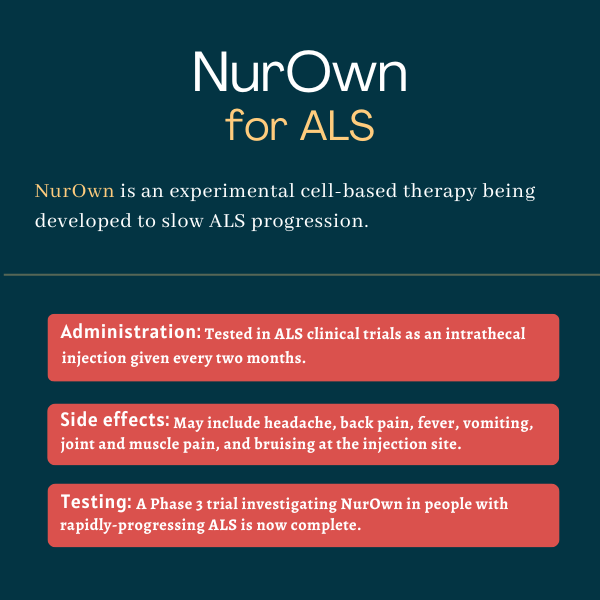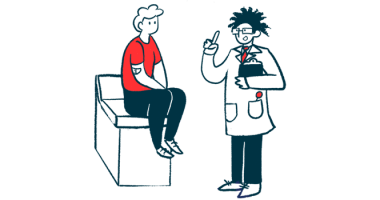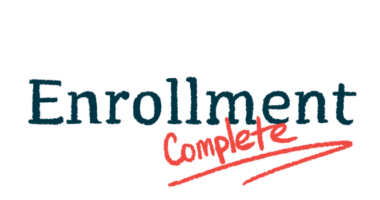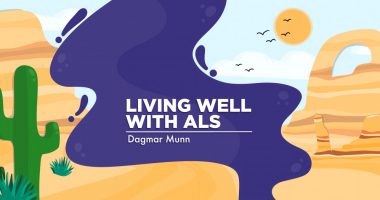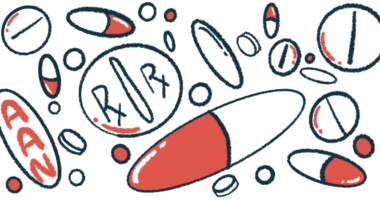FAQs about NurOwn
NurOwn is an experimental cell-based therapy that is being investigated in clinical trials as a potential treatment for amyotrophic lateral sclerosis (ALS). It contains specialized stem cells that produce significant amounts of molecules known to promote nerve cell growth and survival. This is expected to reduce nerve cell damage and potentially slow disease progression in ALS patients.
BrainStorm Cell Therapeutics, the company developing NurOwn, has asked the U.S. Food and Drug Administration (FDA) to approve the therapy. The agency initially declined to review the application, but the company proceed with the filing to secure an advisory committee meeting, where independent experts will discuss the therapy’s potential benefits. The meeting will take place in September and a final regulatory decision is expected by December.
The most common side effects of NurOwn reported in amyotrophic lateral sclerosis (ALS) clinical trials include headache, pain, fever, vomiting, and bruising at the injection site. Still, because patients react differently to a given medication, not everyone will experience similar side effects related to NurOwn treatment. Patients should talk with their care team to better understand how the medication may affect them.
The interaction between alcohol and NurOwn has not been well studied. Patients should speak with their healthcare team to know if and how much alcohol is safe to drink on this therapy.
In the BCT-002 Phase 3 trial, which supported BrainStorm’s application to approve NurOwn, there were signs of a significant slowing in disease progression in people with less advanced disease after seven months. Because amyotrophic lateral sclerosis (ALS) has a variable disease course, some patients may see benefits earlier than others, however. It’s recommended that patients talk with their healthcare provider to better understand when an effect may become evident.
Related Articles

 Fact-checked by
Fact-checked by 